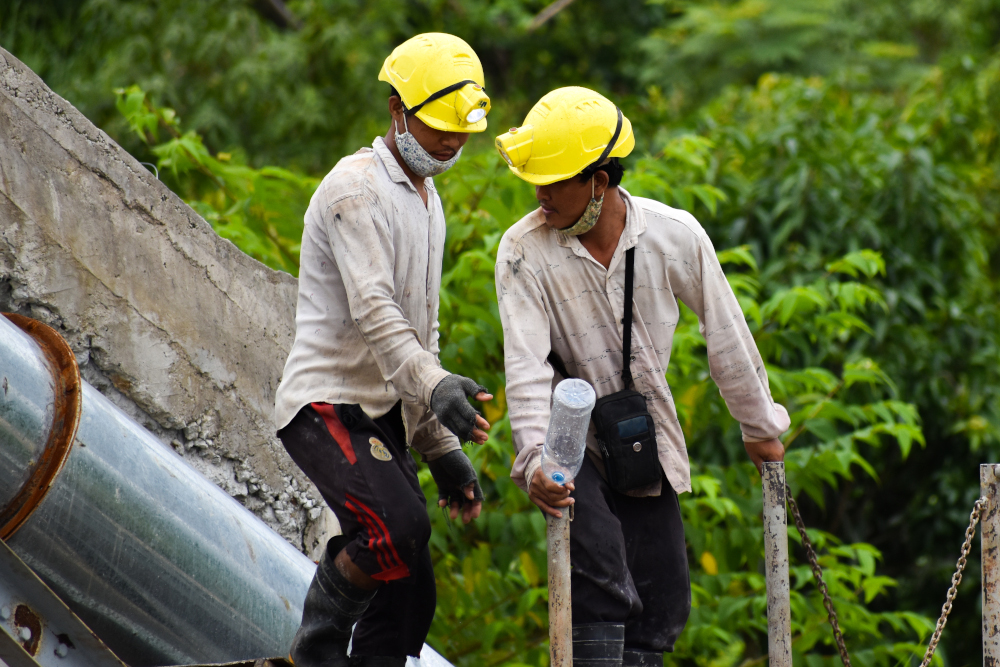This is a guest blog from Oxfam US and an excerpt from an Oxfam policy brief.
The current crisis has taken a major economic toll on the mining sector, with mineral prices falling precipitously. At the same time, for workers and community members living near mine sites the COVID-19 crisis presents extraordinary health and safety risks.
Some governments have declared mining an essential service, justifying their continued operation based on the economic importance of the sector or its contribution to supply chains. As companies put additional safety measures in place, practices vary across the sector. They have never faced a global pandemic and there’s no playbook.
Oxfam offers the following three recommendations to mining companies, which should be implemented urgently.
- Keep mining communities safe and civic space open.
Mining often occurs in remote locations distant from health care facilities and inhabited by indigenous or other marginalized communities who face particularly high risks in the current pandemic. High levels of malnutrition and pre-existing health conditions make indigenous communities more vulnerable to the coronavirus. Some indigenous communities have closed their borders or requested that government put limits on fly-in fly-out workers.
Human rights and environmental defenders next to mines face even more elevated risks during the pandemic. Activists isolated at home make for easier targets, especially with lax law enforcement and limited public circulation. Women human rights defenders face unique and heightened risks, including gender-based violence. In Colombia, three activists were killed within just one week after the government implemented local quarantine measures. In Niger, activists and human rights defenders have been harassed and temporarily detained.
Some mining companies have previously expressed alarm at the rise in attacks on human rights defenders over recent years, and their support for an active and open civic space where critics are able to express opinions without fear of reprisal. Companies have a duty to respect human rights, but there is also a strong business case to do so. By creating space for open and ongoing dialogue with communities, companies reduce the risk of social conflict and create a more stable operating environment.
- Ensure workers are healthy.
Mine workers live and work in crowded conditions and often share equipment, transportation, and even showering facilities, making social distancing extremely challenging. Some suffer from preexisting pulmonary conditions as a result of their work, making them particularly vulnerable. Mining unions have begun to sound the alarm on inadequate health and safety measures in the context of COVID-19, and South Africa’s Association of Mine Workers and Construction Union recently filed a court case demanding that government institute regulations to ensure worker safety during the crisis. Worldwide, stress from the pandemic coupled with stay-at-home orders has intensified and increased violence against women and girls.
Even with inadequate public data on the numbers of COVID-19 cases at mine sites, reports to date are startling. In Peru, the Antamina mining project suspended production after more than 200 workers tested positive for COVID-19. In mid-April, United States Assistant Secretary of Labor for Mine Safety and Health David Zatezalo reported receiving calls “almost every day” from mining companies alerting him to planned temporary mine shut downs as a result of COVID-19 cases.
Considering this challenging context, mining companies must heed government and international guidelines and decrees with respect to this pandemic, including the International Labor Organization’s COVID-19 standards. Labor unions and workers must be consulted on safety and health aspects of their work, in line with ILO requirements.
- Focus on transparency, fiscal stability, and good governance.
Some companies have sought to pursue tax breaks or regulatory relief due to COVID-19 price impacts or operational challenges. While there may be valid rationale for some targeted support such as temporary deferment of taxes, excessive tax breaks risk depriving states and localities of funds desperately needed to confront the pandemic. Recognizing this, some mining companies in a less precarious financial position have sought to provide support to governments and communities to address the crisis. For example, mining giants Newmont and Rio Tinto created global community support funds of $20 million and $25 million respectively, and Barrick gave $530,000 to the Zambian government for COVID-19 response.
Regardless of the location of their operations, all mining companies must take immediate action to implement these recommendations. Mining industry associations like ICMM should consider adopting these measures for their members. Focusing on transparency and good governance, while protecting civic space, and prioritizing the health of communities and workers will ensure a more stable operating environment for companies and ensure host countries can benefit from their mineral wealth.











